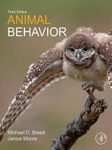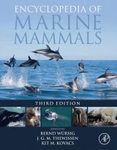About this book
Toxicology: What Everyone Should Know is an essential reference for anyone looking for an entry into this fascinating field of study. This innovative book describes important discoveries in toxicology through the ages, explores their historical and sociological impacts, and shows how they still influence recent, state-of-the-art developments.
In addition, Toxicology: What Everyone Should Know shows how these developments are extrapolated into public and political perceptions on risks and the regulatory consequences, emphasizing environmental issues, such as manmade and natural chemicals, their interaction and impact, nutrition, and drugs.
Users will find a cutting-edge approach to nutritional and combinatorial toxicology, risk evaluation modeling and the benefits of chemicals exposure (nutrition versus man-made chemicals), environmental health, and legislative frameworks to control the public's chemical exposure.
This is an essential reference for those looking for an introduction to toxicology, its past, and exciting future.
Contents
1. The sons of Pharaoh - From pre-taster to toxicologist
2. Death by dose – ‘the most toxic compounds’
3. In quest of the ‘right’ combinations The coping body – coping with the myriad of exposures
4. Nature knows best – Toxins Chemicals from the geobiological sphere
5. From prevention to precaution – perceiving valuing risks
6. The new homeopathy – the linear non-threshold (LNT) model for carcinogenic compounds
7. ‘The policy of truth’ – anchoring toxicology in regulation
8. Knowledge versus Insight - Informatics
9. ‘A Game of Thrones’ – finding the right mixture in science and society
Customer Reviews
Biography
Aalt Bast studied chemistry at the Free University in Amsterdam, where he graduated in 1978. His PhD study (on biotransformation enzymes) at the Erasmus University of Rotterdam (Faculty of Medicine) and at the University of Utrecht (Faculty of Pharmacy) was finished in 1981. Subsequently he became Assistant Professor of Pharmacology at the University of Utrecht. He was appointed Associate Professor of Molecular Pharmacology at the Department of Pharmacochemistry at the Free University in Amsterdam in 1985, and became professor in Molecular Pharmacology in 1988. In 1998 he started to work as professor of Human Toxicology at the Faculty of Health, Medicine and Life Sciences of the Maastricht University. His main field of interest is the role of redox processes in drug toxicity and pathologies of the lung, the cardiovascular system and the liver. Moreover, the possibilities for therapeutic intervention with antioxidants (from food or as drugs) are explored. He is registered as an experimental pharmacologist and as a toxicologist. He (co-)authored over 500 peer-reviewed papers and book chapters and many articles in nutrition and medical magazines. He is a frequently invited international speaker advocating a greater role for science and realistic risk analyses in public opinion and policy decisions. He was president of the Dutch Toxicological Society and member of the National Health Council. He is on the editorial board of several pharmacological and toxicological journals. He has been the promotor of 50 PhDs.
Jaap Hanekamp studied chemistry at the Utrecht of University, and graduated in 1989. His PhD studies on the synthesis of vitamin D-like metabolites at the chemistry and medicine faculty of the Utrecht University was wrapped up in 3 years in 1992. After a year at one of the AKZO-NOBEL research labs, he went to the University of Riverside California to do post-doc research from 1994 to 1995 in the same research field as his PhD. Back in the Netherlands in 1995, chemistry was traded in for a job in which science, policymaking, and societal issues were at the centre of his interests. Nowadays, that work has expanded into the fields that are discussed, among others, in this book: natural food chemicals, food- and chemical safety and toxicology, the understanding of risk analyses, and risk policymaking. In his second PhD titled Utopia and Gospel - Unearthing the Good News in Precautionary Culture, which he successfully defended on the 11th of February 2015, he imbued particular technical risk topics into an overarching framework of sociological, philosophical and theological dimensions as to understand and explain the development and growth of precautionary culture. Apart from his work at University College Roosevelt, he has his own (small) research company in which independent scientific research for third party contractors is carried out. Since 2011, he is an adjunct faculty member at the University of Massachusetts Amherst School of Public Health and Health Sciences, department of Public Health, Environmental Health Sciences. For the past twenty years, both authors have been academic fellow travellers and good friends.


































